B.C. Premier David Eby urges for the removal of trade barriers to facilitate easier shopping within Canada, comparing the issue to tariffs imposed by the United States. He emphasizes the need for Canadians to prioritize buying Canadian goods and highlights the importance of intra-provincial trade. Eby's call draws attention to the long-standing challenges of internal trade in Canada due to its vast geography and uneven population distribution. While acknowledging the Canadian Free Trade Agreement, the report suggests that progress in reducing internal trade barriers has not kept pace with the potential for growth.
B.C. Premier David Eby has renewed his call for the reduction of trade barriers within Canada , emphasizing the need for easier shopping experiences north of the U.S. border. Eby, in a statement on Wednesday, January 22nd, following a virtual meeting with Prime Minister Justin Trudeau and provincial premiers, stated, 'This is pretty basic. If we are going to have the United States putting tariffs on our goods, let's be able to buy stuff from other provinces easily.
Let's buy things Canadian first.' He outlined his position on social media, highlighting the importance of removing barriers that impede Canadians from purchasing goods from each other. Eby's call sheds light on a long-standing issue in Canadian federalism – the complexities of internal trade. Canada's vast geography, coupled with its dispersed population, has historically presented challenges to smooth intra-provincial trade. A 2019 paper by the International Monetary Fund (IMF) underscores this, attributing 57 percent of total trade barriers across all regions and routes to geography. However, the report also identifies three other key types of barriers: prohibitive barriers, such as restrictions on inter-provincial alcohol sales; technical barriers, requiring businesses to comply with different regulations for the same sector across provinces; and permits, licensing, and paperwork requirements for labor, products, and services. These non-geographic barriers vary significantly across sectors, with food products and manufactured goods facing particularly stringent protection. The IMF report highlights that removing these non-geographic barriers could significantly boost trade volumes, reaching levels comparable to international trade. It further argues that full liberalization of goods trade could increase real Gross Domestic Product (GDP) per capita by four percent nationwide. Furthermore, lower internal trade barriers would likely contribute to increased productivity. While acknowledging existing efforts to reduce barriers, such as the Canadian Free Trade Agreement (CFTA) that came into effect in 2017, the IMF report suggests that progress has not kept pace with the potential gains. The report also observes that internal trade liberalization within Canada exhibits a distinct geographical pattern, identifying British Columbia, Alberta, and Ontario as provinces with the lowest non-geographic barriers, while Yukon, Manitoba, Nova Scotia, Prince Edward Island, and Newfoundland and Labrador face higher hurdles. Although public support for trade liberalization within Canada is generally high, the report identifies several obstacles, including court rulings that grant provinces significant power to establish and enforce internal trade barriers, despite constitutional provisions granting Ottawa full control over trade and commerce
TRADE BARRIERS CANADA INTERNAL TRADE BRITISH COLUMBIA DAVID EBY JUSTIN TRUDEAU
Canada Latest News, Canada Headlines
Similar News:You can also read news stories similar to this one that we have collected from other news sources.
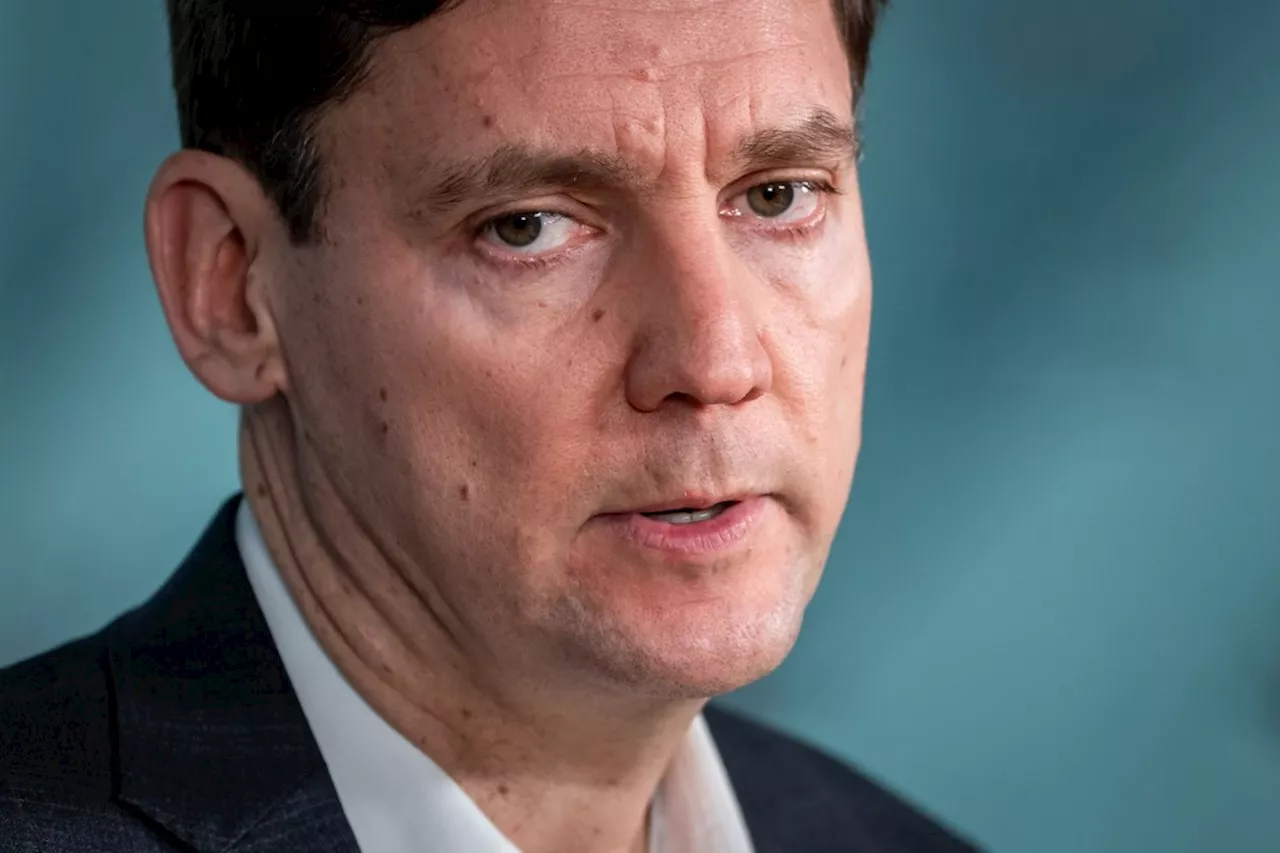 Trump Tariffs: B.C. Premier Eby Declares 'Economic War' on CanadaBritish Columbia Premier David Eby warns of severe economic consequences for the province as U.S. president-elect Donald Trump threatens 25% tariffs on Canadian goods. Eby and Finance Minister Brenda Bailey outline projections of a $69 billion GDP loss, 124,000 job cuts, and a 7.1% unemployment rate over Trump's presidency. The report emphasizes the unprecedented nature of the tariffs and the potential impact on B.C.'s diversified export market.
Trump Tariffs: B.C. Premier Eby Declares 'Economic War' on CanadaBritish Columbia Premier David Eby warns of severe economic consequences for the province as U.S. president-elect Donald Trump threatens 25% tariffs on Canadian goods. Eby and Finance Minister Brenda Bailey outline projections of a $69 billion GDP loss, 124,000 job cuts, and a 7.1% unemployment rate over Trump's presidency. The report emphasizes the unprecedented nature of the tariffs and the potential impact on B.C.'s diversified export market.
Read more »
 Canada's Trade Surplus with US Grows Amidst Trump's Trade RhetoricDespite a ninth consecutive trade deficit, Canada's surplus with the US expanded in November. This comes as incoming US President Donald Trump has repeatedly criticized Canada's trade policies and threatened tariffs.
Canada's Trade Surplus with US Grows Amidst Trump's Trade RhetoricDespite a ninth consecutive trade deficit, Canada's surplus with the US expanded in November. This comes as incoming US President Donald Trump has repeatedly criticized Canada's trade policies and threatened tariffs.
Read more »
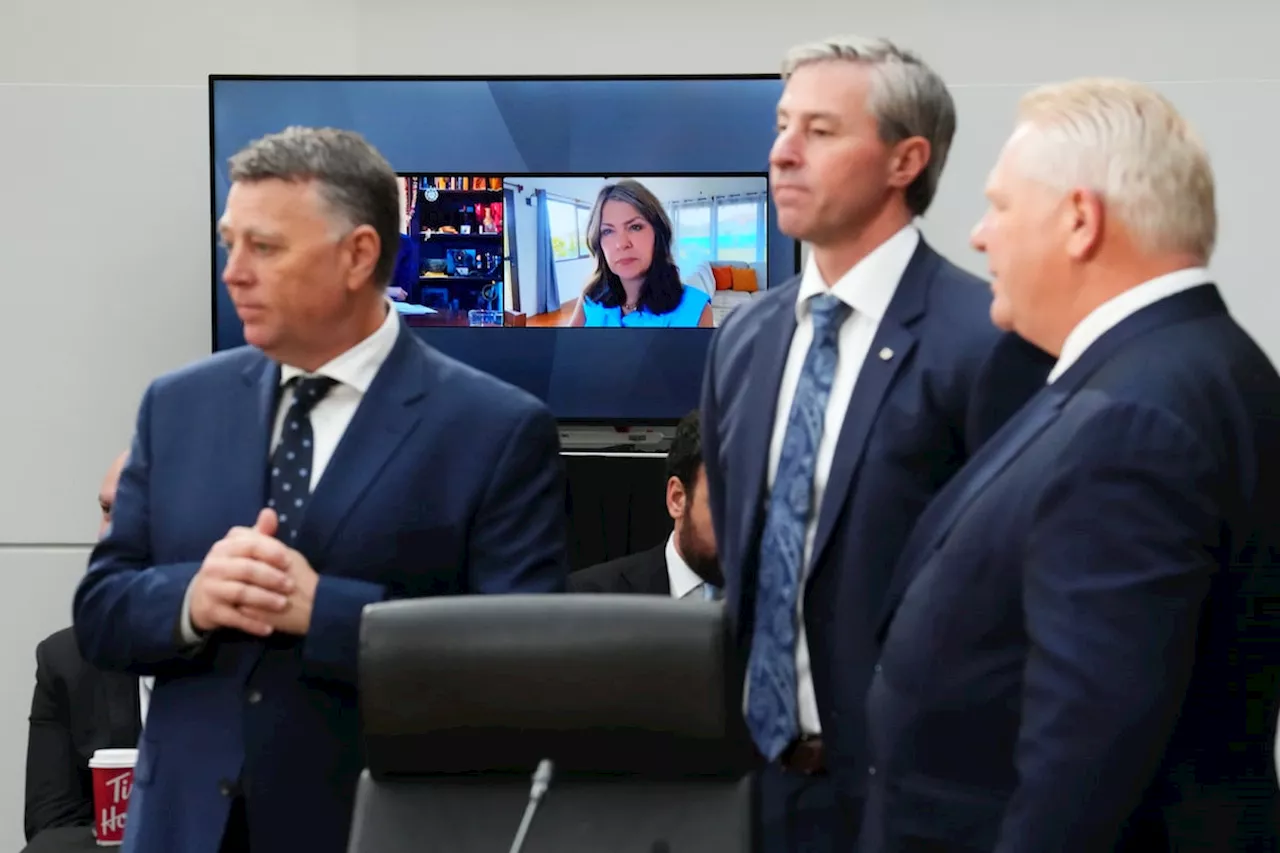 Alberta Premier Objects to Federal Tariffs as Canada Prepares for Trump Trade WarCanadian Prime Minister Justin Trudeau and provincial leaders met to discuss a unified response to Donald Trump's threats to impose tariffs on Canadian goods. While most premiers supported a coordinated retaliation strategy, Alberta Premier Danielle Smith strongly opposed the federal government's potential use of export levies or restrictions on energy exports.
Alberta Premier Objects to Federal Tariffs as Canada Prepares for Trump Trade WarCanadian Prime Minister Justin Trudeau and provincial leaders met to discuss a unified response to Donald Trump's threats to impose tariffs on Canadian goods. While most premiers supported a coordinated retaliation strategy, Alberta Premier Danielle Smith strongly opposed the federal government's potential use of export levies or restrictions on energy exports.
Read more »
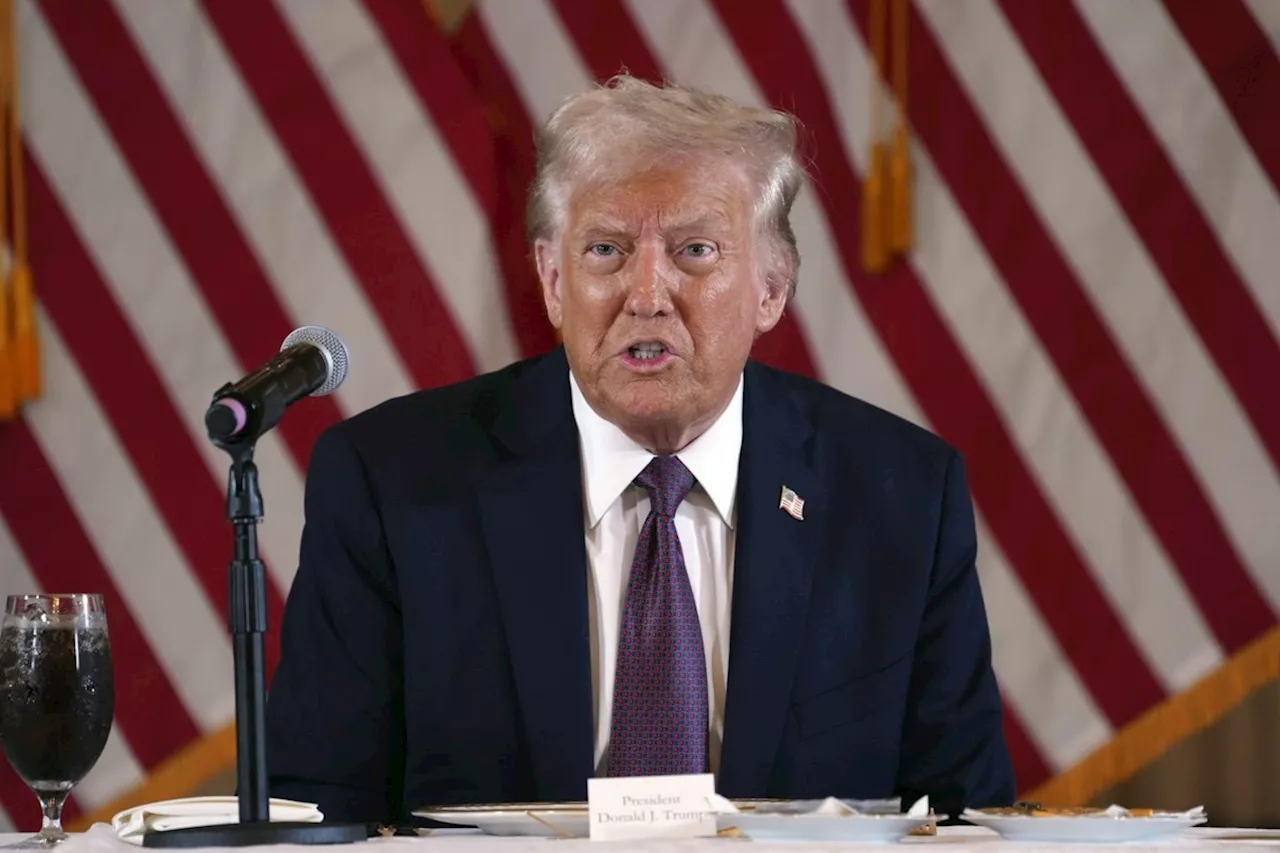 US Benefits as Much From Canada Trade as Canada Does, Report SaysA new report by economist Jim Stanford finds that the US benefits at least as much from trade with Canada as Canada does, contradicting claims made by incoming US President Donald Trump.
US Benefits as Much From Canada Trade as Canada Does, Report SaysA new report by economist Jim Stanford finds that the US benefits at least as much from trade with Canada as Canada does, contradicting claims made by incoming US President Donald Trump.
Read more »
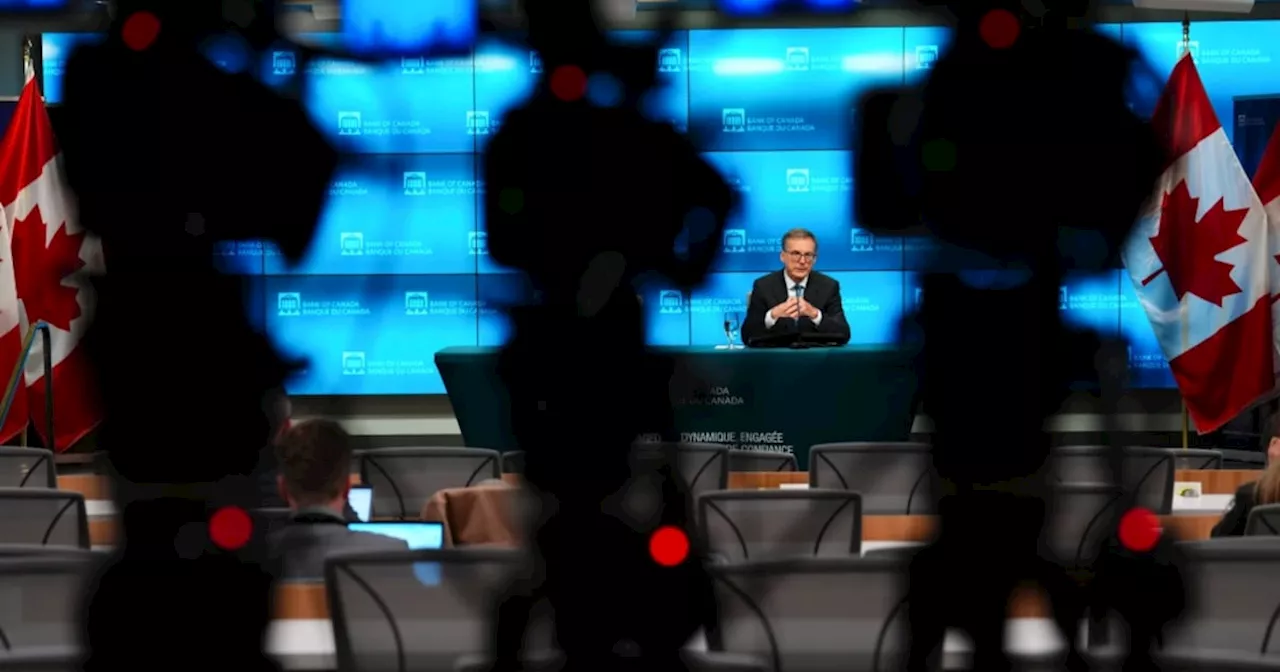 Canada's Inflation Eases, But Bank of Canada Faces Tough Trade-OffCanada's inflation rate dipped in December, but a leading economist warns that the Bank of Canada will likely prioritize stimulating the economy over immediate inflation control, given the looming threat of US tariffs and slowing growth.
Canada's Inflation Eases, But Bank of Canada Faces Tough Trade-OffCanada's inflation rate dipped in December, but a leading economist warns that the Bank of Canada will likely prioritize stimulating the economy over immediate inflation control, given the looming threat of US tariffs and slowing growth.
Read more »
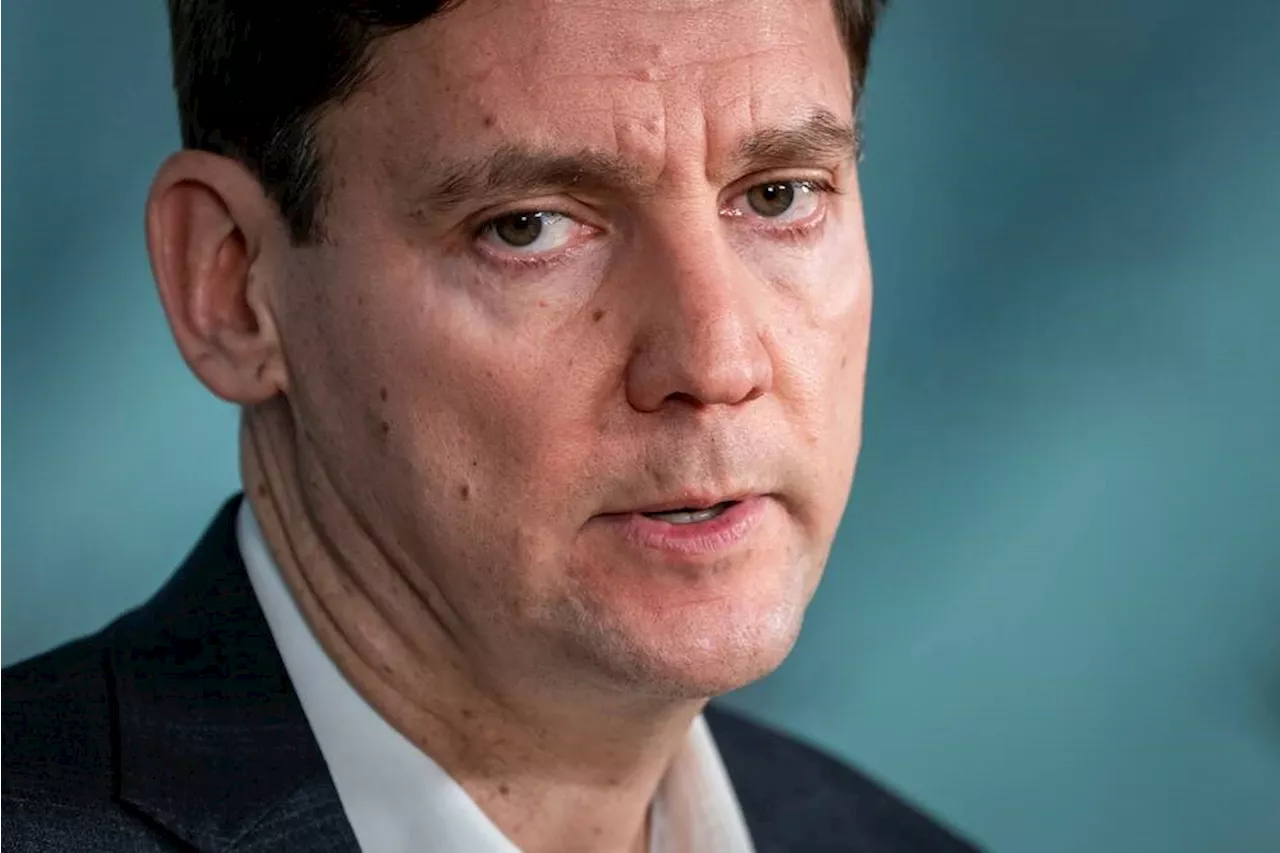 Rob Shaw: Eby leaves B.C. families famished for relief as trade war loomsPremier parks $1K grocery rebate with no timeline for return
Rob Shaw: Eby leaves B.C. families famished for relief as trade war loomsPremier parks $1K grocery rebate with no timeline for return
Read more »
